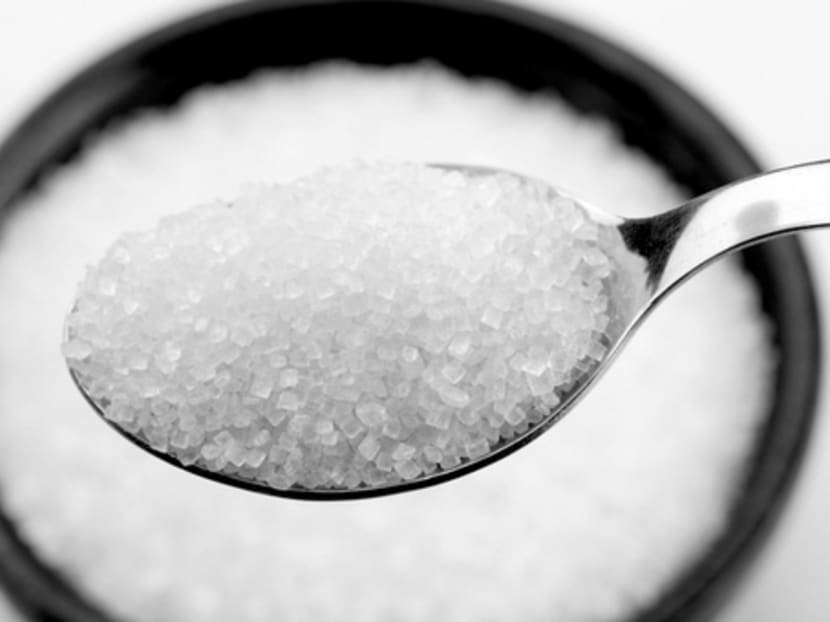Debunking the myth of sugar and hyperactivity
There are many stories about food and its effects on us. Some come from our parents and grandparents telling us what to eat or not eat. They include “do not eat the watermelon seeds, the vine will grow in you”, to one of the most common and prevalent tales: That sugar will make kids hyperactive, and that artificial sweeteners can make children behave badly.
There are many stories about food and its effects on us. Some come from our parents and grandparents telling us what to eat or not eat. They include “do not eat the watermelon seeds, the vine will grow in you”, to one of the most common and prevalent tales: That sugar will make kids hyperactive, and that artificial sweeteners can make children behave badly.
The sugar story gets reinforced when we see children eat sweets and drink soft drinks and then seem to run around with a lot of energy.
On the face of it, it makes sense that sugar provides energy and, therefore, children who eat too much cake or candy will soon be bouncing off the walls. The alleged reaction to sugar is attributed to a rise in blood sugar shortly after the child consumes sugar, or to the opposite — low sugar after the sugar that is eaten is reduced in the blood, or even that the child is allergic to sugar.
The alleged reaction to the artificial sweetener that is widely used in soft drinks, aspartame, is that it elevates an essential amino acid (phenylalanine) concentrations, which alters the transport of other essential amino acids to the brain.
The reports that sugar and artificial sweeteners are bad for children and that they create a multitude of emotional, attitudinal and physical problems are widespread. These stories remain prevalent in the media; just do a web search, it is not uncommon to find these “facts”.
If these facts are true, they should be a major concern, since both sugar and the artificial sweetener aspartame are widely used.
But what are the facts on sugar and aspartame with regard to behaviour in children? The research on this is quite consistent and clear, at least on the short-term effects of sugar and sugar substitutes.
The bottom line is, despite the many anecdotes about the emotional and behavioural effects of sugar and aspartame, controlled studies that have examined the effect of sugar have not found any pattern of problems that exceed those who were not consuming these.
In a very simple study, researchers randomised a group of children into two groups. In one group, children received higher quantities of sugar than those in the other group.
The children in the two groups behaved similarly, and the various tests of behaviour and attention did not differ between the two groups.
The two groups of children were no different from each other. Sugar had more of a calming effect than a hyperactive effect.
Another study in which children were given higher than average amounts of sugar or sugar substitutes showed similar results.
In a simple experiment, children were given foods containing either sugar or a sugar substitute every other day. The children who ate sugar showed the same behaviour in terms of thinking or learning as those taking the sugar substitute. The two groups looked the same and behaved in the same manner.
NO SUGAR SIDE-EFFECTS
These studies have been criticised for their brief duration and laboratory settings. Thus, the question is, yes, sugar and aspartame do not have short-term problems or effects in children, but could they have long-term consequences? And could some children be more vulnerable than others?
The common belief is that pre-school children are more sensitive to sugar.
A very clear experiment was performed and the results published in the New England Journal of Medicine in 1994.
The study looked at the effects of three diets on subjects and their families. One diet was high in sugar with no artificial sweeteners, another was low in sugar and contained aspartame, while the third was low in sugar and contained a placebo.
The children were put on a different diet for each of three consecutive three-week periods. The appearance of the sweetened products was kept identical, regardless of the sweetener used.
Forty-eight children — comprising 25 normal pre-school children and 23 school-age children who were reported to be sensitive to sugar — took part. They were studied using many questionnaires and tests.
Neither sugar nor aspartame showed any effect on any of the tests or questionnaires. Even the children thought to be sensitive to sugar did not show any sensitivity to sugar. The amount of aspartame the children consumed was ten times more than what they would consume even if they were drinking diet sodas.
The bottom line is that sugar and its substitute aspartame do not cause behavioural problems, but this does not mean children should consume as much sugar as they want.
Sugary soft drinks are packed with calories and it is easy to underestimate the total amount of calories consumed. This may be one of the prime reasons for increasing rates of obesity in children.
Occasional sweets and sugary drinks are not a problem, but excessive consumption can lead to physical problems such as weight gain, obesity and diabetes.
So what do we make of this? Experience tells us one thing, yet data show something different. This is a common problem and is very much related to how humans think — we tend to see patterns that are not there and make sense of them, whether they are real or an illusion.
ABOUT THE AUTHOR:
K Ranga Krishnan is Dean of the Duke-NUS Graduate Medical School Singapore. A clinician-scientist and psychiatrist, he chaired the Department of Psychiatry and Behavioural Sciences at Duke University Medical Centre from 1998 to 2009.







